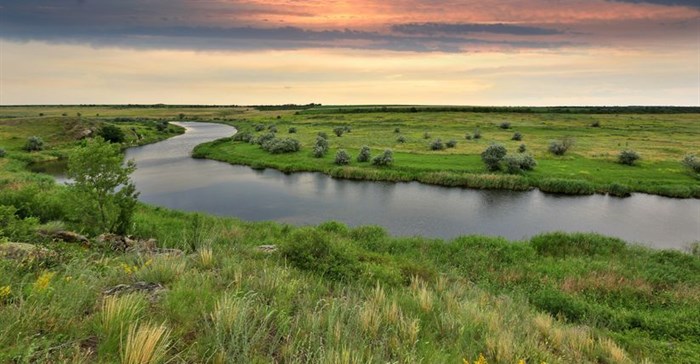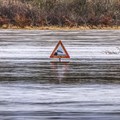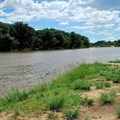Going back to basics, when African citizens managed the landscapes through rotational grazing, for example, are the key foundations if the continent is to achieve the long-term aspirational goals set by the UN and AU. We Africans have utilised resources and survived interactively with nature since time immemorial until we were divided and, in many cases, set against each other as foreign nations and countries. The values attached by our ancestors to nature were slowly eroded with disempowerment and dispossession. We must continue reversing the impoverished legacy of Africa and we can!
During the month of May, specifically the 25th, the continent (and globally) celebrates Africa Month, a time to reflect and tactically plan our future as Africans. Africa Day (formerly African Freedom Day and African Liberation Day) is the annual commemoration of the foundation of the OAU (now known as the AU) on the 25th of May 1963. This attractive African landscape area is roughly 29 million sqkm, with an estimated 1.2 billion inhabitants (2016).
Both the SDG:2030 and Africa Agenda have by their nature very good aspirations, a better world where no one is left behind in grinding poverty, inequality and conflict we experience daily. However, these ideals can only remain as talk shows and unattainable visions as long as we do not transform, care, and love the nature that gives us livelihood. Unsurprisingly, these international transformation mechanisms highlight restoration, reversal of biodiversity loses in their targets as early as 2020 through 2030 to 2063, just to mention a few.
Literature reports that Africa’s landscape is counted amongst the worst eroded, a serious threat to food security, prosperity and resilience in the changing climatic conditions. The global urbanisation rate is estimated at 70% before 2050. This change in settlements means carrying capacity of the landscape and its ability to provide ecosystem services (due to degradation) will decrease at alarming rates, affecting food production, business, causing natural habitat and biodiversity loss, poor water quality, an increase in water-borne related diseases, species extinctions, expansion of alien invasive species, veld fire disasters and many more negative effects.
Ecological restoration
Fortunately, landscapes can be restored, however costs escalate with the extent of degradation and the urgency at which citizen scientists, private sector and government act in unity. Protecting landscapes or catchment areas is one of the key investment opportunities Africans can make to heal our environment. Beyond improved urban and rural water security, nature-based solutions provide multiple benefits for people and biodiversity, such as reducing flood risk, dam siltation, etc. With peoples’ movements, African cities, (like others globally) and their water utilities face a significant challenge - that of ensuring safe and sufficient supply of water within a context of great uncertainty. Supplementing of grey infrastructure with greening of catchments through restoration are critical for ensuring resiliency in the face of drought and many other pressures. The Nature Conservancy (2018) studied threats to landscape in just thirty African cities in the SADC and found that 28 of these can improve water security by millions of cubic metres through reducing soil erosion which leads to sedimentation of dams (lowering water quality and hiking purification costs) and nutrient loading of dams, lakes, and rivers. Going back to nature-based solutions is central and excessively cheap compared to other water security interventions, such as desalination, wastewater re-use etc.
In South Africa, the Water Research Commission and partners are focusing on prioritising degraded catchment areas, such as restoration of degraded natural ecosystems or what is popularly called ecological infrastructure, using natured-based solutions in securing water of good quantity and quality, benefiting society and business. South Africa recently identified critical water resource areas from which more than 50% of our rainfall drains. Unfortunately, most of them are under threat from the spread of highly thirsty alien invasive plants, besides unsustainable mining and agricultural activities, the degradation of vegetation cover leading to bare and easily eroded soils. Indeed, most of these impacts run across the continent.
Investment needed
It has already been identified how much investment (running into billions just for uMngeni, Berg-Breede systems) is required to restore these degraded catchments. More resources will certainly be required to green up or create healthy ecological infrastructure across the country. While these resources may sound high, any further delays will only mean we incur more costs to achieve the same. Returns on investment have also been estimated, though finer details are still under investigation. South Africa can certainly do better with further donor funding above the Global Environmental Facility's current assistance. The private sector's continued support as well as committed citizen scientists make up pillars of restoration. Various method developments to streamline nature-based solutions into policy and public participation are well under way.
The Water Research Commission, Departments of Environment and Water in partnership with the International Society for Ecological Restoration are finalising the plans for an international conference focused on restoration as one of the tools for water security, resilient landscapes and communities in the light of the changing world characterised by frequent droughts in some areas and floods elsewhere, often highly disastrous. Undoubtedly this conference (24-28 September in Cape Town) comes at an opportune time when Africa and South Africa are experiencing these disasters and in need of diverse expert views to ensure preparedness which will save lives and properties now and into the future. The ultimate goal of the conference is to establish a community of practice called Society for Ecological Restoration: African Chapter. Of all the continents, Africa is the only one without this chapter despite being one of the worst-hit by uncertainties as projected. This will change from September and forever and indeed most impacts will be felt in water security as a result of resourced restoration interventions for which the chapter will pave the way.



























